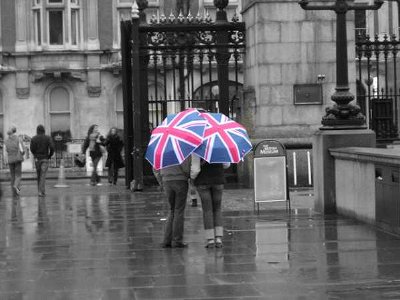1. Perhaps nothing is more English than Fish and Chips, England's contribution to the world culinary stage. Did the two individual components, fried battered fish and deep fried potatoes (chips) originate in England?
From Quiz Quintessentially English
Answer:
No, neither dish did
Fried fish in batter originated with Jews in Spain well before the 16th century. Cooking was not allowed on the Jewish Sabbath (sundown Friday night to sundown Saturday). So Jewish families would prepare food on Friday afternoon to cover the following 24 hours. One such dish was a white fish, usually cod or haddock, fried in a thin batter of flour which preserved the fish so it was eaten cold the next day. The Spanish Inquisition outlawed Judaism, sending Spanish Jews to Portugal, but then in 1496, the Portuguese King Manuel I married Isabella of Spain and insisted on the expulsion of all Jews from Portugal. Most fled to England, specifically, London where Jewish immigrants sold the fried fish in streets from trays hung around the neck. With the advent of large-scale trawl fishing in the North Sea and the subsequent crisscrossing of the country with railway transport, fried fish became both common and cheap.
The history of fried potatoes is more obscure. Belgium claimed the invention of fried potatoes. According to local folklore, in 1680, the winter was so cold that the River Meuse froze, denying residents their main source of fish. Families resorted to cutting potatoes in the shape of fish and frying them in oil to provide makeshift sustenance. Charles Dickens mentions in "A Tale of Two Cities" (1859) "husky chips of potato fried with some reluctant drops of oil," which meant that chips had reached England by the mid-19th century.
There is no doubt, though, that the union of fried potatoes (later called chips after their shape to provide the quintessential English meal of fish and chips) occurred in England. There were competing claims for the first fish and chip shop: A Jewish immigrant called Joseph Malin opened a fish and chip shop in 1860 in London. In Manchester, a fish and chip stand opened by John Lees was very successful by 1863. By the late 1920s, there were 35,000 fish and chip shops in the United Kingdom. They stayed open during World War I as neither component was rationed. To boost morale the same practice was observed during World War II.










 Quick Question
Quick Question